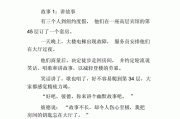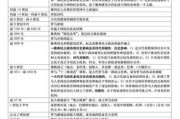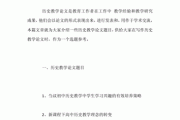历史故事:海豚救主成为生命奇迹 在古代,人们对海洋很少了解。海洋神话和传说让人们对海洋充满了恐惧和敬畏。然而,在一个古老的海滨城市,一个关于海豚的真...
2023-11-10 1733

Britain has a long and fascinating history that spans over thousands of years. From the prehistoric times to the modern age, the British history is marked by wars, conquests, monarchies, and revolutions that have shaped the cultural, social, and political identity of the country. In this article, we will explore the most important milestones of the British history that have left an indelible mark on the world.
The prehistoric times refer to the period before the arrival of the Romans in Britain in 43 CE. During this time, Britain was inhabited by the Celtic tribes who left behind important monuments such as Stonehenge, which is believed to have been built between 3000 and 2000 BCE. The Iron Age, which started around 800 BCE, saw the emergence of the hill forts, which served as communal living spaces for the Celtic tribes.
The arrival of the Romans in Britain marked a significant turning point in the country's history. The Romans set up a sophisticated infrastructure that included roads, aqueducts, and public buildings, and they introduced Christianity to the island. However, the Roman rule was not without its challenges, as the local Celtic tribes rebelled against their conquerors several times, most notably under the leadership of Queen Boudicca in 60 CE.
After the fall of the Roman Empire, the Germanic tribes known as the Anglo-Saxons invaded Britain and established a series of kingdoms. The period from 500 to 1000 CE was marked by the spread of Christianity, the emergence of the English language, and the establishment of a feudal society. The era is also famous for the legendary figure of King Arthur and the epic poem "Beowulf."
The Norman Conquest of 1066 marked the end of the Anglo-Saxon period and the beginning of the Norman dynasty. William the Conqueror established a centralized government and introduced a new nobility class, which spoke French and brought new ideas and customs to England. The period was marked by the construction of Gothic cathedrals, the signing of the Magna Carta in 1215, and the Hundred Years' War with France.
The Tudor period, which started with the accession of Henry VII in 1485 and ended with the death of Elizabeth I in 1603, is considered a renaissance of English culture and literature. The period also saw the rise of Protestantism and the establishment of the Church of England. The Stuart era, which lasted from 1603 to 1714, was marked by the Civil War, the execution of King Charles I, the Glorious Revolution, and the reigns of the two James and two Charles kings.
The Industrial Revolution, which started in the mid-18th century, brought significant changes to England's economy and society. The country became a leading producer of textiles, iron, and coal, and new inventions such as the steam engine and the spinning jenny transformed the way of life. The Victorian era, which began with the accession of Queen Victoria in 1837, was marked by social reforms, the expansion of the British Empire, and the emergence of a middle-class and working-class culture.
The two World Wars of the 20th century had a profound impact on Britain's history. In World War I, which lasted from 1914 to 1918, Britain played a vital role as part of the Allied Forces, and the war had significant repercussions on the country's economy and society. World War II, which lasted from 1939 to 1945, saw Britain again fighting alongside the Allies and dealing with the aftermath of bombings and destruction on its cities.
The post-war period was marked by significant changes in Britain's social and political landscape. The country's economy underwent a transition from a manufacturing to a service-oriented economy, and the welfare state was introduced. The country also experienced significant social changes, such as the rise of feminism and multiculturalism. The 21st century has seen Britain dealing with issues such as Brexit, the growing divide between rich and poor, and global challenges such as climate change.
The history of Britain is a rich tapestry of events and achievements that have influenced the world in many ways. From the prehistoric monuments to the modern-day challenges, Britain's story is one of resilience, adaptability, and diversity. By understanding and learning from its past, Britain can continue to shape its future.
相关文章

历史故事:海豚救主成为生命奇迹 在古代,人们对海洋很少了解。海洋神话和传说让人们对海洋充满了恐惧和敬畏。然而,在一个古老的海滨城市,一个关于海豚的真...
2023-11-10 1733

中国历史故事100个 中国历史悠久,留下了无数令人惊叹的故事和传说。这些故事不仅展示了人民的智慧和勇气,也记录了历史的变迁和人类文明的成长。在这里,...
2023-11-10 1781

世界历史故事短篇 历史就像一张巨大的拼图,由无数个小小的事件和故事组成。今天,我们就来看看几个史上惊人之事,这些故事让人们震惊、感动、甚至难以置信。...
2023-11-10 1741

世界历史大事年表:重要事件一览 世界历史是由无数重要事件组成的。这些事件有些在当时就引起轰动,有些则在后来才被人们所重视。无论是哪种事件,它们都对世...
2023-11-10 1779

世界历史100集——探索人类文明演变史象征意义 《世界历史100集》是一部讲述人类历史发展的迷人纪录片,它通过对全球历史事件和文化现象的诠释,为我们...
2023-11-10 1674

历史学的基本特征及其意义 历史是指从古到今所发生的一切事情,而历史学则是对历史进行系统性的研究和探究。历史的研究具有许多特征,同时也有着深远的意义。...
2023-11-10 1673

中国历史网入口 中国历史悠久,文化灿烂。不同朝代的科技、文化和思想,构成了中国现代社会的根基。如果你想浏览中国历史的精髓,探索神秘文明,中国历史网是...
2023-11-09 257

五千年前是哪个朝代(五千年前,哪个朝代开创中华文明? 五千年前的中国,正处于新石器时代晚期,各地的部落为了生存而努力打拼着。此时还没有统一的朝代,...
2023-11-09 265
发表评论